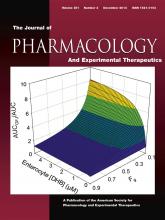Abstract
We hypothesized that the mitochondrial-targeted antioxidant, mitoquinone (mitoQ), known to have mitochondrial uncoupling properties, might prevent the development of obesity and mitigate liver dysfunction by increasing energy expenditure, as opposed to reducing energy intake. We administered mitoQ or vehicle (ethanol) to obesity-prone C57BL/6 mice fed high-fat (HF) or normal-fat (NF) diets. MitoQ (500 µM) or vehicle (ethanol) was added to the drinking water for 28 weeks. MitoQ significantly reduced total body mass and fat mass in the HF-fed mice but had no effect on these parameters in NF mice. Food intake was reduced by mitoQ in the HF-fed but not in the NF-fed mice. Average daily water intake was reduced by mitoQ in both the NF- and HF-fed mice. Hypothalamic expression of neuropeptide Y, agouti-related peptide, and the long form of the leptin receptor were reduced in the HF but not in the NF mice. Hepatic total fat and triglyceride content did not differ between the mitoQ-treated and control HF-fed mice. However, mitoQ markedly reduced hepatic lipid hydroperoxides and reduced circulating alanine aminotransferase, a marker of liver function. MitoQ did not alter whole-body oxygen consumption or liver mitochondrial oxygen utilization, membrane potential, ATP production, or production of reactive oxygen species. In summary, mitoQ added to drinking water mitigated the development of obesity. Contrary to our hypothesis, the mechanism involved decreased energy intake likely mediated at the hypothalamic level. MitoQ also ameliorated HF-induced liver dysfunction by virtue of its antioxidant properties without altering liver fat or mitochondrial bioenergetics.
Footnotes
- Received August 20, 2014.
- Accepted October 8, 2014.
These studies were supported by resources and the use of facilities at the Department of Veterans Affairs, Iowa City Health Care System, Iowa City, Iowa [Grant 2I01BX000285-05]; the National Institutes of Health National Heart, Lung, and Blood Institute [Grant 5R01-HL073166]; by the Fraternal Order of the Eagles; by a National Research Service Award [Grant T32-GM008365] Predoctoral Training Program in Biotechnology to C.K.; and by a fellowship from the American Physiological Society to B.J.W.
- U.S. Government work not protected by U.S. copyright
JPET articles become freely available 12 months after publication, and remain freely available for 5 years.Non-open access articles that fall outside this five year window are available only to institutional subscribers and current ASPET members, or through the article purchase feature at the bottom of the page.
|






